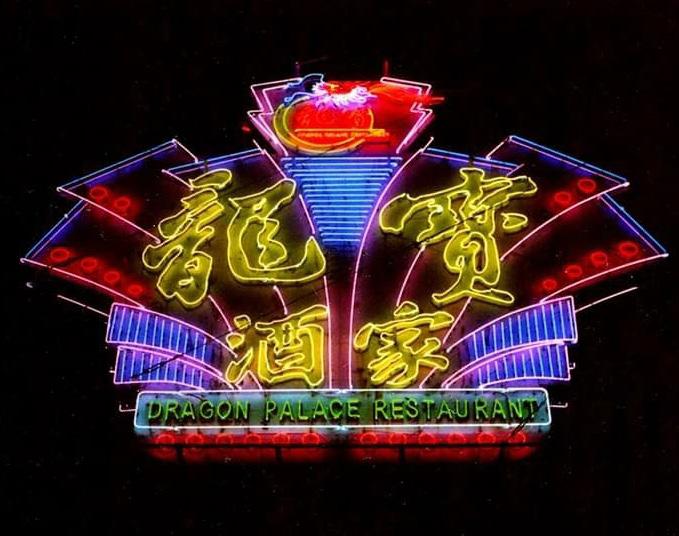
12 minute read
Local
Where did the lights go
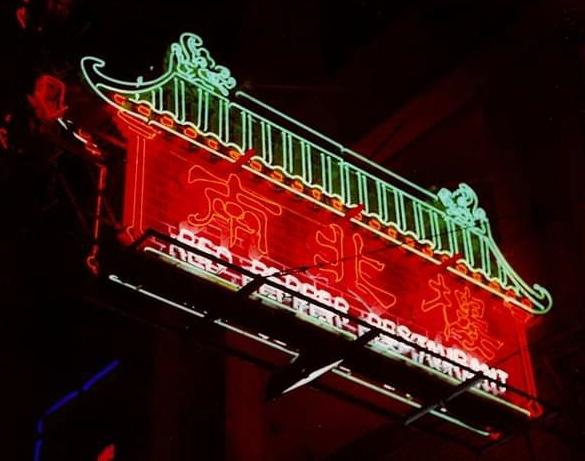
Advertisement

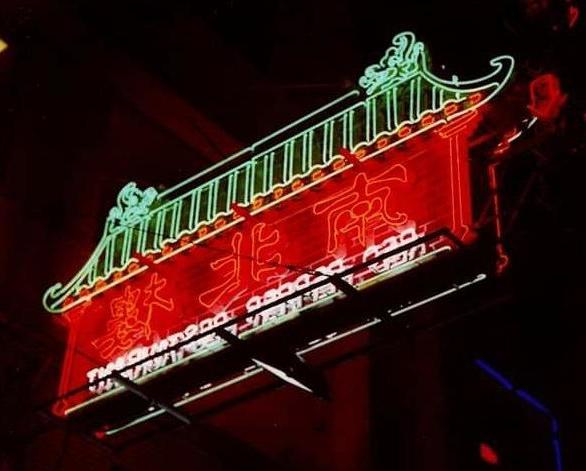

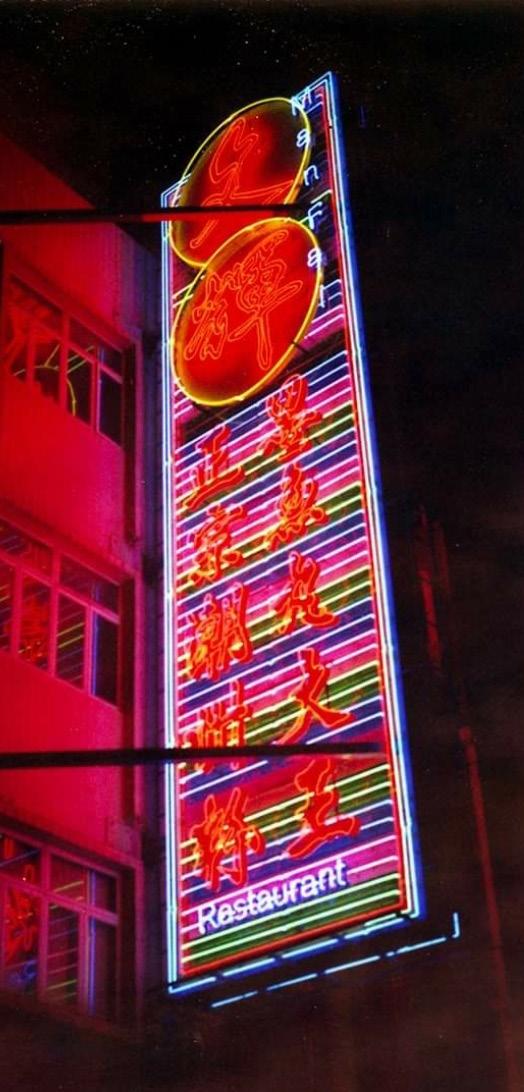
Apple Lee meets the people who are fighting to preserve Hong Kong’s fast-disappearing neon lights
Kenji Lee Kun-lun, the executive director and chief executive officer of Tsui Wah Group, stood outside his cha chaan teng on Parkes Street in Jordan as he watched the removal of his restaurant’s main neon sign. It took a team of more than 10 workers and two large tractors to keep the nearly nine metres-tall sign suspended while it was being detached from the building. Before the sign was lowered to the ground, the neon lights were switched on, which bursted into dazzling hues of contrasting colours, in a symbolic move to pay tribute to the sign’s cultural significance.
The removal and preservation of the Tsui Wah neon sign was the first major project that Tetra Neon Exchange (TNX) took on. Born out of a reaction to the city’s fast-disappearing neon signs, TNX is a newly founded non-profit organisation that aims to preserve Hong Kong’s neon culture. The group hopes to salvage neon signs of the city and display them at exhibitions to encourage more people to learn about this iconic Hong Kong artefact. Instead of heading to the landfill, the decades-old Tsui Wah neon sign is now safely tucked away in a storage space, waiting to be restored by a local neon signmaker.
“Neon lights are the visual and cultural identity of Hong Kong. Growing up in the 80s, I was surrounded by countless neon signs when I strolled down the streets of Yau Ma Tei, Mong Kok and Tsim Sha Tsui,” says Cardin Chan, general manager of TNX.
In the last two decades, up to 90 percent of Hong Kong’s neon signs have disappeared. The decline of the city’s neon lights can be traced back to the late 1990s when LED technology arrived on the scene. Compared to neon, LED is cheaper to produce, more energy efficient and easier to maintain. At around the same time, many neon companies also started relocating to mainland China where the rent and labour cost were cheaper.
In 2011, a new government regulation concerning outdoor structures around buildings came into existence. The control system mandates business owners to remove signs that pose public safety risks. Since then, the


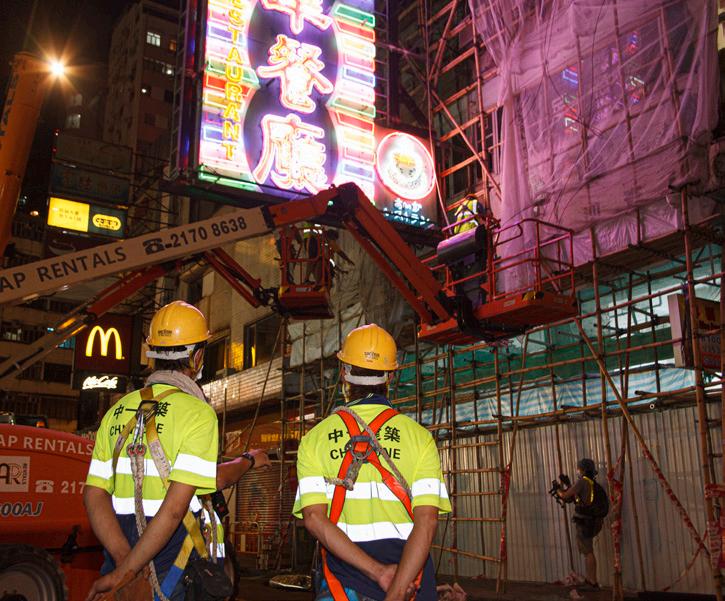
government has retired a staggering number of neon signs. It’s reported that more than 5,000 sign boards were taken down in 2009 alone.
“People often express their pity when they see a neon sign removed, but they are also quick to move on from it. I encourage them to look up more when walking the streets and notice the neon signs that are still there. Go to businesses that have neon signs on and tell them that their signs could bring in businesses for them. You don’t have to wait until something is gone to show your appreciation for it,” says Chan.
Outside of its conservation work, TNX is dedicated to raising awareness about Hong Kong’s neon culture. Its latest project involves a collaboration with Swiss photographer and filmmaker Pascal Greco to publish a neon photography book. Greco had visited Hong Kong annually for seven consecutive years between 2012 and 2019 and captured more than 300 photos of the city’s neon signs on his Polaroid and film cameras – some of which no longer exist in our streetscape.
To pay homage to Hong Kong’s visual heritage and neon signmakers, Greco has handpicked 170 of his photos and compiled them into a dedicated photography book. Titled Hong Kong Neon, the book is accompanied by interviews with two local neon masters and an essay by Christopher Doyle, the acclaimed cinematographer best known for his work with Hong Kong filmmaker Wong Kar-wai in Chungking Express, Happy Together and In the Mood for Love.
Due to the global pandemic and its devastating economic impact, the Swiss publisher that Greco is working with is struggling to pool together enough funds to cover the printing costs for Hong Kong Neon. In September, Greco launched a month-long crowdfunding campaign on Kickstarter to raise money for a limited run of 500 copies and got in touch with Chan to help to get the word out.
“After talking to [Greco] on the phone for hours, I was moved by how much he cares about Hong Kong neon lights and the work that he has put behind shooting all the photos. There hasn’t been a photography book dedicated to Hong Kong’s neon lights since the 90s. Hong Kong Neon is more than a collection of pictures, it also serves as an important archive for our conservation work,” says Chan.
The online crowdfunding campaign for Hong Kong Neon is open until October 8. Supporters will receive a signed copy of the book by pledging $340 or more. Greco relies on the community support to bring his book to live. If Hong Kong Neon does not reach its crowdfunding goal, the book will not be produced. To learn more about TNX or support the crowdfunding campaign, visit TetraNeonExchangeTNX on Facebook.
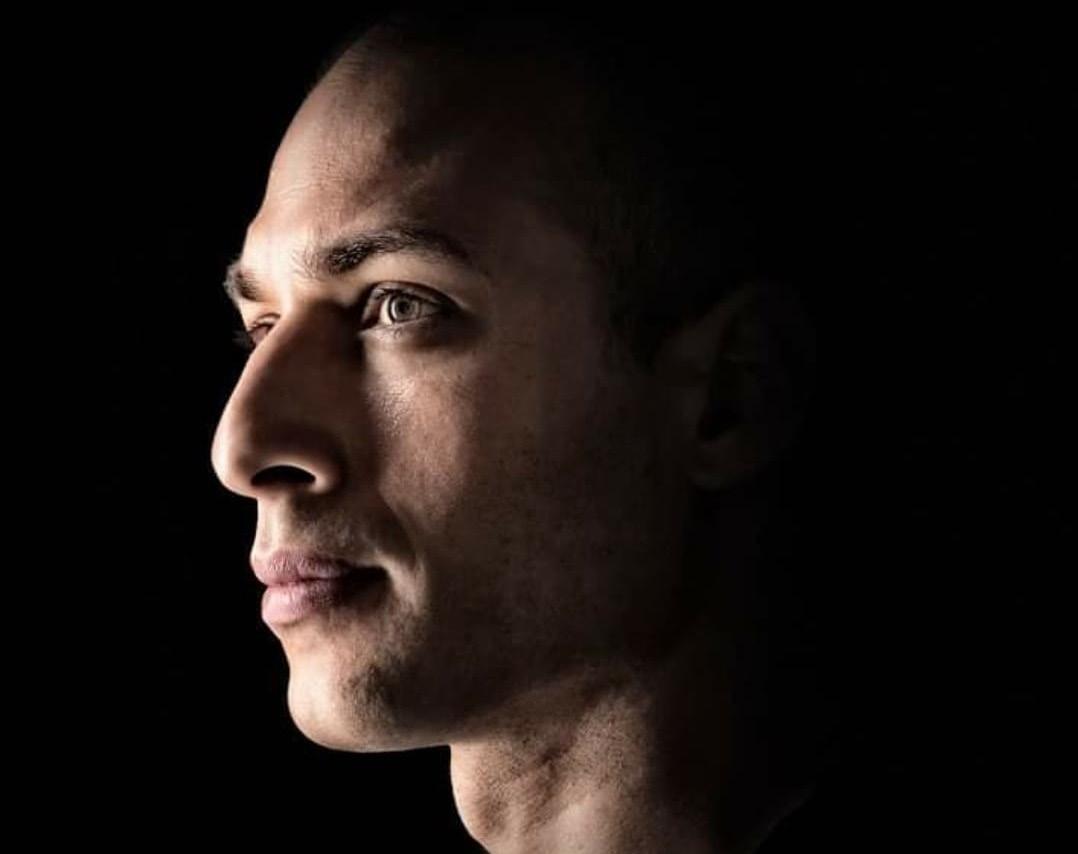
Pascal Greco


Pandemic pivots

Melanie Cox meets Hong Kong’s business owners pushing through uncertain times
If history has taught us anything, it’s that pandemics have happened in the past and will likely happen again. While we can’t prevent them from emerging, we can prepare for ways to soften their impact on society.
This month Hong Kong Living shines a light on five business leaders that have shifted tactics and successfully steered their brands through unprecedented waters.
On a glorious September day we sat down to hear how these inspiring leaders adjusted, adapted and came out smiling.
As with every financial recession consumers are reluctant to spend, particularly on luxury goods. “With continuous lockdowns, businesses closing down and changing consumer buying habits, the infrastructure of our business had to change,” says Payal Shah, founder and creative director of the award-winning L’ Dezen by Payal Shah.
Founded in 2011, L’ Dezen by Payal Shah specialises in one of a kind designs. Shah has seen success on a global scale, travelling to trade shows around the world and even dressing some of the top names in Hollywood.
Things took an unforeseen turn in the middle of 2019. “Our business took some big hits,” says Shah. “Almost every trade show in Hong Kong went from 100 percent capacity to 10 to 15 percent.”
In October 2019, Shah shifted her entire product line from retail to online, knowing an economical turn was not guaranteed, her quick call-to-action to go digital proved to be pivotal.
“We started revamping our user experience by adding virtual try-ons on our website and created marketing campaigns to encourage all If you’re on Instagram, you have most definitely seen one of South African chef-proprietor Zahir consumers to start shopping online”.
While you may think it would be impossible to select a piece of jewellery without even touching it, Shah partnered with software company ‘Camweara’ to allow clients to see how the piece looks on them before purchasing.
With so much displacement in the global workforce, Shah is particularly proud to see Mohamed’s sourdough-based dishes. Tucked away Elgin Street, Baked is notorious for its hour long queues on weekends, even amidst a global pandemic.
“We were encouraged to act fast and not compromise Baked’s belief system, providing a fulfilling experience with respect to

that her digital transformation has championed L’Dezen to not only maintain healthy revenues, but see a higher return in investment.
“With reduced costs on trade shows, external travelling expenses and marketing costs we reduced immensely and are so proud to have not laid off any of our employees.”
ldezen.com
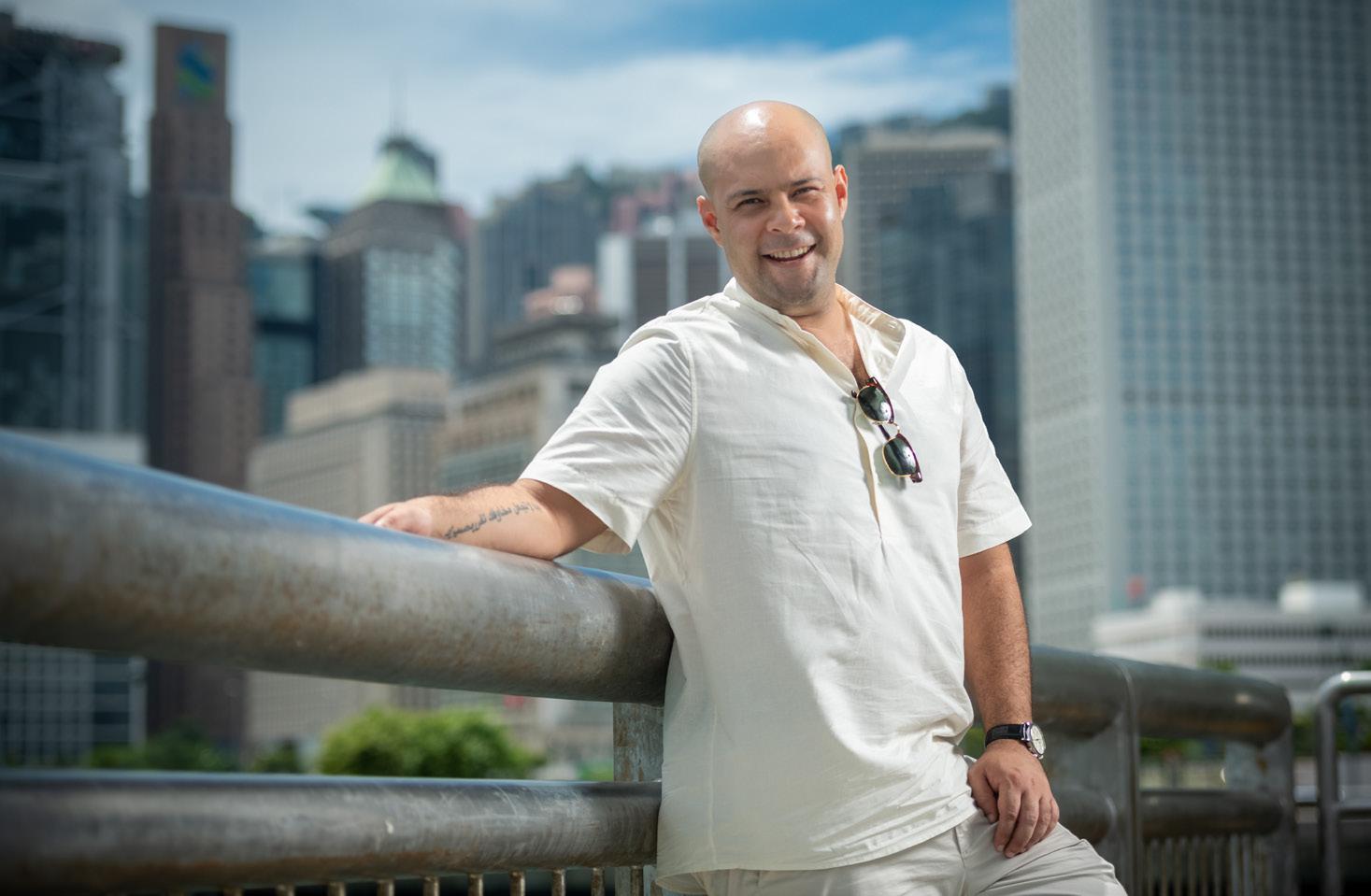
our community,” says Zahir Mohamed, founder of Baked. “During this period, we looked at the gaps and got personal on social media and in service. This allowed us to show more compassion to our customers,” says Mohamed.
Each wave taught Mohamed a new lesson. Baked was able to test the water and find new streams of revenue to further the brand’s success.
“The business continues to grow differently with each wave. When the second and third wave hit, we reacted quickly with take away offerings providing a channel for people to pre-order,” says Mohammed.
Mohamed’s love for the community is a two way street. Even during the toughest of times, Baked’s loyal customer base has been the brand’s strongest asset. This enabled the team to retain all staff and avoid salary cuts.
Perhaps most impressive of all is that Baked Restaurant Group will be opening not one, but two new spaces amidst the pandemic. The first is Acme, a cosy diner situated at the top of Soho and the second, Yung & Lazy, tucked away in Wan Chai with a similar easy-going vibe as Baked.
While the future of dining may be unclear. Mohammed’s focus remains clear. “This is an amazing time to focus on growth. It is time for us to put our thinking caps on and think outside the box.” bakedhongkong.com
Few industries have fallen as fast as the travel industry. So what does one do when the world stops travelling? Charlotte Harris, managing director of Charlotte Travel, acted quickly to shift the predominant nature of travel to offer domestic travel packages, staycations and unique experiences to keep the boutique agency afloat.
One thing that has remained during this period of change is the formidable ethos at the heart of the family-owned business.
“Early in the pandemic we were seeing friends within the travel industry closing shop or furloughing staff. Our management team decided that giving up was not an option,” says Harris.
“Not only did we come through 2019 with one of our best years yet, but in a time of crisis, we helped hundreds of clients get home.”
When countries began closing their borders to travellers in late January, clients were calling for advice to rearrange their travel plans. Adhering to their company values, Charlotte Travel kept its doors open every single day to help passengers gain access to travel during restrictions. “Clients called from around the world needing expert advice,” says Harris. “All of them were able to speak to a human within three rings, during the The world of health and fitness as we know it is facing an unprecedented economic crisis. day and through the night.”
Harris has seen firsthand that in unprecedented times, there are no rules. But this is where personal growth emerges. “Do what you want and what is best for you,” she says. And that’s exactly From cancelled tournaments to yoga studios and gyms shutting down, the future of sport remains uncertain when we are reduced to the confines of our homes.
But this shift has inspired more businesses to go digital. New opportunities have emerged for fitness trainers to carve out direct revenue

what she did. In between adapting the nature of her business, Harris got married and is now also in the process of launching a virtual wedding business, Gold Ring Virtual Weddings.
charlottetravel.com.hk

streams and virtual home workouts have exploded in popularity.
“Home workouts are going to be a trend. People will discover that they can actually do a lot more at home,” says Keith Rumjahn, CEO of OliveX.
OliveX is a digital lifestyle company with a focus on health and fitness. Under its umbrella of apps is KARA Smart Fitness, aimed at busy people who still want to workout. KARA operates through an interactive smart fitness mirror, powered by artificial intelligence to detect its operators body movements. 2020 has seen a new digital ecosystem appear via platforms such as Zoom, YouTube, IG Live and Facebook Live, enabling fitness coaches to build consumer relationships beyond their studios.
Rumjahn has exemplified that where there is loss, there is opportunity. Riding on the theme of connected fitness and stay at home trends, OliveX was able to execute an initial public offering (IPO) in Australia in August. “This would not be possible without the support of our coaches and community during times of uncertainty,” says Rumjahn.
olivex.ai

As some may say, right place, right time. And that is exactly the case for Vincent Tsui, Co-founder and CEO of WOOM Workspace Booking Platform.
The leading workspace book platform began in 2018 and allowed users to reserve meeting rooms, work desks, and business event spaces within minutes. “It is just like a UBER of workspaces,” says Tsui.
At the start of this year, WOOM had over 50 business centres under its portfolio as Covid-19 has reshaped the traditional workforce and office setting.
The timing was perfect as WOOM was seen as the ideal service provider and economical problem solver for businesses looking to downsize their office space and reduce their expenditure as budgets tightened.
Additionally, WOOM has recently expanded their business into hotel day passes for the local business community.
“Within one month we had a network of hotels distributing work from room packages. That became a great hit in the market and
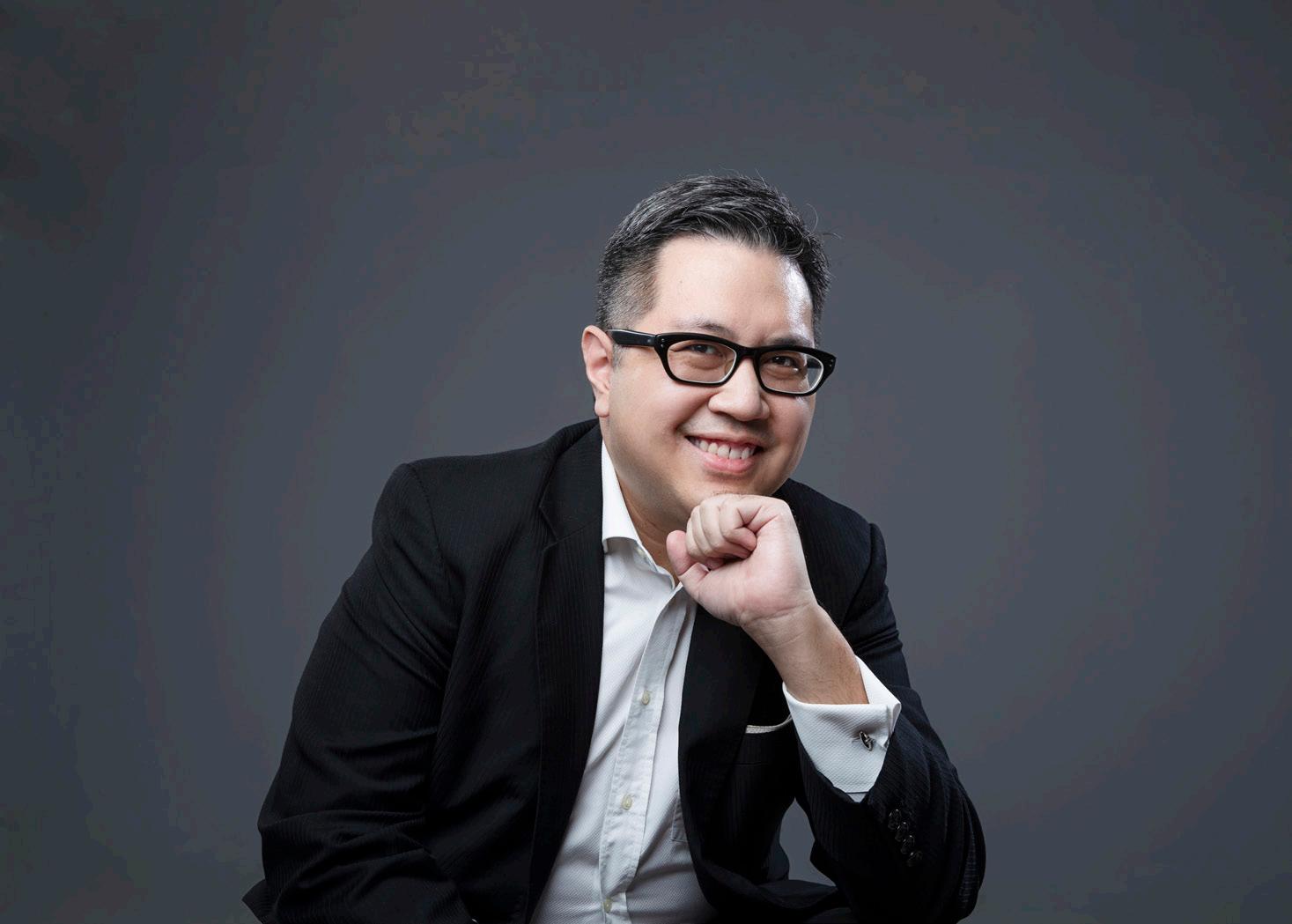
replenished our revenue loss from the business travellers that originally was the bread and butter of our business.”
Being an entrepreneur is about adapting to change and Tsui is living this philosophy to its best.
“There’s never a set formula that can give you success forever,” says Tsui. “I have always had the entrepreneurial spirit in my heart, observing the market trends and it’s needs has always been my hobby.” woom.io











